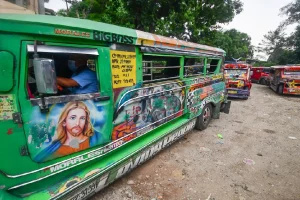A task force from the country’s premier state university has recommended the creation of a single agency to handle public transportation and conduct consultations with stakeholders as ways to improve the mass transit system.

“To solve the country’s public transportation problem, a University of the Philippines document called on the national government to unify governance on public transportation and include small operators and commuters in the modernization program,” the University of the Philippines (UP) Diliman Task Force on a Blueprint for Building the Nation said in a recent statement.
Cresencio Montalbo, a professor at the UP School of Urban and Regional Planning, noted that at least 8 agencies currently work on public transport, including the Department of Transportation, Land Transportation Franchising and Regulatory Board, Department of the Interior and Local Government, and Metropolitan Manila Development Authority.
“A unified agency could better address the different concerns related to the planning, operations, and monitoring of public transport,” the task force said in the governance agenda.
In 2018, the Japan International Cooperation Agency reported that daily losses to the economy due to traffic congestion in the Philippine capital was at P3.5 billion and warned that the figure could go up to P6 billion by 2030 if the situation was not addressed.
The panel added that transport agencies need to be more collaborative with stakeholders, including public utility vehicle (PUV) operators and drivers, in implementing the PUV Modernization Program.
“Modernizing the transportation system needs to involve bus and jeepney operators, drivers, and commuters whose livelihood and incomes are affected,” it said in a statement.
In the governance agenda, the task force recommended consultations and crowdsourcing with stakeholders.
“Crowdsourcing involving drivers, operators, commuters, and other stakeholders could potentially address the lack of available data on public transport and guide policymakers in addressing the sector. Through crowdsourcing, stakeholders can be tapped to compile data from the ground for evidence-based decision-making processes.”
The task force also urged the government to “think about going electric and start replacing our conventional vehicles,” noting how many countries have already phased out “conventional or internal combustion engine vehicles.”
“If we don’t think about going electric, we might be the last country to still use conventional vehicles (ICE) vehicles,” said Lew Andrew Tria, a professor at the UP Electrical and Electronics Engineering Institute.
“The danger of that is there will be no suppliers for us for these conventional vehicles, and we might end up with just surplus or old vehicles coming from other countries,” he added.
In April, the task force, under UP Diliman’s Office of the Chancellor, came out with the governance agenda which contained policy recommendations on wide-ranging issues including public transport, economic recovery, higher education, political and electoral reforms, and foreign policy, among others.
In coming up with the recommendations, the task force said the university sought to “harness its expertise, skills, and praxis to help shape the post-pandemic and political transition toward a transformative future for the Filipino people.”
(This article was first published in the ABSCBN News Website on July 4, 2022)
